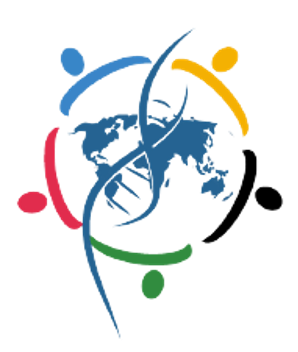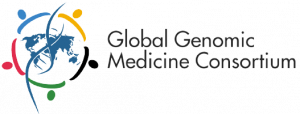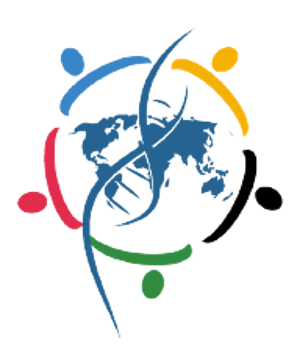5th G2MC (Virtual) Conference
Genomic Medicine Implementation in Low-Resource Settings
May 6 - 8, 2020
The G2MC Virtual Conference has concluded. A huge thanks to our sponsors, organizing partners, planning committee, speakers, and attendees for making this a successful event! Conference materials are posted below.
About the Event
G2MC held its 5th Global Genomic Medicine Conference as an abbreviated virtual meeting due to the global impact of the coronavirus pandemic. Leaders in Genomic Medicine across the globe tuned in to define collaborative projects and strategies for using genomic advances to improve clinical care globally. Session topics included:
- Genomic Landscape in Latin America
- Genomics of Common Disorders
- Genomics of Rare Disorders
- Solutions to Roadblocks
Many speakers also took the opportunity to share how their organizations and countries are using genomic methods to address the COVID-19 response. Read More
The virtual conference was made possible by organizing partners The Golden Helix Foundation and Universidad del Desarrollo, and our virtual conference sponsors. The originally planned conference, scheduled to take place in Santiago, Chile, will likely be rescheduled for the later part of 2021.
Over 325 Participants tuned in
Representing 45 countries
G2MC 2020 Virtual Conference Attendees
Meeting Presentations and Recordings
Session Videos
- Session I Welcoming Remarks & Opening Keynote (Rafael Araos, MD, MSc): Chilean Response to COVID-19
- Session I Presentations: Genomic Landscape in Latin America
Presentation Slides

Patient Participation and Advocacy
In this presentation, Cecilia Rodriguez the importance of patient empowerment, patient engagement, and adopting an interactive approach to better engage patients in their healthcare.

Chilean Response to COVID-19
This presentation describes SARS-CoV-2 and its effects on the Chilean healthcare system. Dr. Araos explains the timeline and epidemiology of the disease, the steps the Chilean government took to control the disease, and the challenges for continued control.

The Brazilian Reference Genome Project
In this presentation, Dr. Pereira describes the Brazilian Reference Genome Project, which is working closely with ELSA Brasil. She describes the current strategy in place for this project, on a short and log-term basis.

Development of an Actionable NGS Cancer Panel in the Chilean Health Care System
This presentation describes the ways in which genomic medicine is used in oncology biomarker detection and treatment. Dr. Marcelain specifically spoke on the use of TumorSec to help in identifying cancer in patients in Chile.

Latin American Hereditary Cancer Network
This presentation describes Lynch Syndrome, a rare type of colorectal cancer, and its prevalence in Latin America. Dr. Dominguez-Valintin also describes research collaborations, relevant publications, insights from a worldwide database, educational programs, and funding available for managing colorectal cancer.

Education and Workforce
In this presentation, Dr. Taucher outlines the importance of genomic medicine, and the need for better education and training of healthcare professionals on this topic. She concludes the presentation with recommendations for improving Chilean public health in regards to genomic medicine.

Patient Participation and Advocacy
In this presentation, Cecilia Rodriguez the importance of patient empowerment, patient engagement, and adopting an interactive approach to better engage patients in their healthcare.

Chilean Response to COVID-19
This presentation describes SARS-CoV-2 and its effects on the Chilean healthcare system. Dr. Araos explains the timeline and epidemiology of the disease, the steps the Chilean government took to control the disease, and the challenges for continued control.

The Brazilian Reference Genome Project
In this presentation, Dr. Pereira describes the Brazilian Reference Genome Project, which is working closely with ELSA Brasil. She describes the current strategy in place for this project, on a short and log-term basis.

Development of an Actionable NGS Cancer Panel in the Chilean Health Care System
This presentation describes the ways in which genomic medicine is used in oncology biomarker detection and treatment. Dr. Marcelain specifically spoke on the use of TumorSec to help in identifying cancer in patients in Chile.

Latin American Hereditary Cancer Network
This presentation describes Lynch Syndrome, a rare type of colorectal cancer, and its prevalence in Latin America. Dr. Dominguez-Valintin also describes research collaborations, relevant publications, insights from a worldwide database, educational programs, and funding available for managing colorectal cancer.

Education and Workforce
In this presentation, Dr. Taucher outlines the importance of genomic medicine, and the need for better education and training of healthcare professionals on this topic. She concludes the presentation with recommendations for improving Chilean public health in regards to genomic medicine.
Session Videos
- Session II Keynote (Teri Manolio, MD, PhD): International Hundred K+ Cohorts Consortium
- Session II Presentations: Genomics of Common Disorders
Presentation Slides

Predicting Genomic Risk in Diverse Populations
In this presentation, Dr. Kenny explains the growing amount of GWAS in relation to the small amount of diversity in sample populations. She also discusses the ways in which we should aim incorporate genomic diversity into calculating patients’ health risks.

International Hundred K+ Cohorts Consortium
In this presentation, Dr. Manolio gave an overview of our partner ship organization, IHCC. She discussed the vision, history, goals, current projects, and a summary of their most recent international summit

Large-scale nationwide genomics projects: The Genome of Greece (GoGreece) initiative
This presentation outlines the GoGreece initiative, which aims at implementing personalized medicine in Greece. Dr. Patrinos describes the GoGreece aims, goals, current progress, and preliminary findings.

100K Genomic Medicine RCT in Clalit, Israel
This presentation disucesses how the Clalit 100K Israeli Genomes RCT is testing the genomic medicine paradigm in practice. Specifically, Dr. Rennert discusses the current status of the trial, the foreseen outcomes, and the study’s phases and next steps.

Gene-Environment Interactions in Chronic Disease: The Maule Cohort
In this presentation, Dr. Ferreccio describes the MAUCO cohort’s objectives, methods, and findings.

Predicting Genomic Risk in Diverse Populations
In this presentation, Dr. Kenny explains the growing amount of GWAS in relation to the small amount of diversity in sample populations. She also discusses the ways in which we should aim incorporate genomic diversity into calculating patients’ health risks.

International Hundred K+ Cohorts Consortium
In this presentation, Dr. Manolio gave an overview of our partner ship organization, IHCC. She discussed the vision, history, goals, current projects, and a summary of their most recent international summit

Large-scale nationwide genomics projects: The Genome of Greece (GoGreece) initiative
This presentation outlines the GoGreece initiative, which aims at implementing personalized medicine in Greece. Dr. Patrinos describes the GoGreece aims, goals, current progress, and preliminary findings.

100K Genomic Medicine RCT in Clalit, Israel
This presentation disucesses how the Clalit 100K Israeli Genomes RCT is testing the genomic medicine paradigm in practice. Specifically, Dr. Rennert discusses the current status of the trial, the foreseen outcomes, and the study’s phases and next steps.

Gene-Environment Interactions in Chronic Disease: The Maule Cohort
In this presentation, Dr. Ferreccio describes the MAUCO cohort’s objectives, methods, and findings.
Session Videos
- Session III Keynote (Andrew Sinclair, Ph.D., FAAHMS): Australian Genomics
- Session III Presentations: Genomics of Rare Disorders
Presentation Slides

Return of results and scaling their model
In this presentation Kelly East describes the training and considerations needed to enact a genome sequencing project in the southern US. This project utilized non-genetics healthcare providers to return results, which produced a more efficient work-flow and increased communication with patients.

Genomic Workforce Development, Engagement and Education in New Zealand
In this presentation, Dr. Thunders describes the Genomic medicine and Genetics workforce specifically in New Zealand. She also addresses the educational requirements for genomic medicine students, the barriers to genomic medicine, and proposed solutions to these issues.

Australian Genomics
In this presentation, Professor Sinclair describes the purposes of the Australian Genomics Health Alliance and its approach to betting the Australian Health Care System through thier many programs, projects, and flagships. He also highlights the outcomes and impacts from these programs.

The International Rare Diseases Research Consortium (IRDiRC)
In this presentation, Dr. Reichardt discusses the IRDiRC, their goals, current task forces, scientific committee, and possible new directions.

Regional Rare Disease Diagnostic Programs
This presentation describes the rare disease programs currently present in Latin America. Specifically, Dr. Poli discusses the DECIPHERD and Immunodeficiency cohorts and their approaches to, successes, and challenges in the rare disease space.

Return of results and scaling their model
In this presentation Kelly East describes the training and considerations needed to enact a genome sequencing project in the southern US. This project utilized non-genetics healthcare providers to return results, which produced a more efficient work-flow and increased communication with patients.

Genomic Workforce Development, Engagement and Education in New Zealand
In this presentation, Dr. Thunders describes the Genomic medicine and Genetics workforce specifically in New Zealand. She also addresses the educational requirements for genomic medicine students, the barriers to genomic medicine, and proposed solutions to these issues.

Australian Genomics
In this presentation, Professor Sinclair describes the purposes of the Australian Genomics Health Alliance and its approach to betting the Australian Health Care System through thier many programs, projects, and flagships. He also highlights the outcomes and impacts from these programs.

The International Rare Diseases Research Consortium (IRDiRC)
In this presentation, Dr. Reichardt discusses the IRDiRC, their goals, current task forces, scientific committee, and possible new directions.

Regional Rare Disease Diagnostic Programs
This presentation describes the rare disease programs currently present in Latin America. Specifically, Dr. Poli discusses the DECIPHERD and Immunodeficiency cohorts and their approaches to, successes, and challenges in the rare disease space.
Session Videos
- Session IV Keynote (Soumya Swaminathan, MD): WHO – Vision on Genetics and Genomics
- Session IV Presentations: Solutions to Roadblocks
Presentation Slides

Challenges in Implementing Genomic Medicine in Latin America
In this presentation, Dr. Armisen describes the various barriers to genomic medicine, with an emphasis on how they affect Latin America. He also outlines a few local initiatives that are helping to implement human genomic data and how organizations can work together to begin addressing these barriers.

A National Network for Implementing GeNomics In pracTicE: IGNITE
In this presentation, Dr. Ginsburg describes the IGNITE network, its experiences in implementing genomic medicine, and how G2MC can apply their work to focus on low and middle income countries.

ISCC-PEG: A Collaborative Approach to Education
This presentation outlines the ISCC-PEG committee that is supported by the NIH NHGRI. Dr. Haspel explains the function of the committee, their current projects, their goals involving genomic literacy, and the role education can play as a solution.

Next Generation Sequencing to Limited Resource Settings
In this presentation, Dr. Febbo describes Illumina’s technological capabilities and possible applications in limited resource countries.

Challenges in Implementing Genomic Medicine in Latin America
In this presentation, Dr. Armisen describes the various barriers to genomic medicine, with an emphasis on how they affect Latin America. He also outlines a few local initiatives that are helping to implement human genomic data and how organizations can work together to begin addressing these barriers.

A National Network for Implementing GeNomics In pracTicE: IGNITE
In this presentation, Dr. Ginsburg describes the IGNITE network, its experiences in implementing genomic medicine, and how G2MC can apply their work to focus on low and middle income countries.

ISCC-PEG: A Collaborative Approach to Education
This presentation outlines the ISCC-PEG committee that is supported by the NIH NHGRI. Dr. Haspel explains the function of the committee, their current projects, their goals involving genomic literacy, and the role education can play as a solution.

Next Generation Sequencing to Limited Resource Settings
In this presentation, Dr. Febbo describes Illumina’s technological capabilities and possible applications in limited resource countries.
Session Videos
- Session IV Presentations: Working Groups Report and Closing Remarks
Presentation Slides

Rare Disease FP Breakout Report
The Rare Genetic Disorder co-chairs, Drs. Dissanayake and Shuldiner give a report on the overall implementation objectives of the group, a recap of the breakout discussion, and the next steps for the project..

Family Health History Breakout Report
The Family Health History Flagship Project co-chair, Grant Wood, discussed the group’s breakout report. This included possible fudning sources, related organizations/initiatives, common Family Health History use cases, and the group’s overall goals.

Education WG Breakout Report
The Education working group co-chairs, Drs. Korf, Haspel, and Dissanayake, describe the next steps for the group. These steps inlcude analysis of the Education Needs Assessment survey and planning of a genomic medicine immersion course for the next face-to-face conference.

Evidence WG Breakout Report
The Education working group co-chairs, Drs. Abramowicz and Al-Mulla describe the aims and scope of the working group, as well as the upcoming tasks and timeline for implementation.

Rare Disease FP Breakout Report
The Rare Genetic Disorder co-chairs, Drs. Dissanayake and Shuldiner give a report on the overall implementation objectives of the group, a recap of the breakout discussion, and the next steps for the project..

Family Health History Breakout Report
The Family Health History Flagship Project co-chair, Grant Wood, discussed the group’s breakout report. This included possible fudning sources, related organizations/initiatives, common Family Health History use cases, and the group’s overall goals.

Education WG Breakout Report
The Education working group co-chairs, Drs. Korf, Haspel, and Dissanayake, describe the next steps for the group. These steps inlcude analysis of the Education Needs Assessment survey and planning of a genomic medicine immersion course for the next face-to-face conference.

Evidence WG Breakout Report
The Education working group co-chairs, Drs. Abramowicz and Al-Mulla describe the aims and scope of the working group, as well as the upcoming tasks and timeline for implementation.
- “Human genetics and genomics meetings going virtual: practical lessons learned from two international meetings in early 2020” published in Human Genomics. This article, co-authored by virtual conference organizing co-chair Gabriela Repetto, discusses lessons learned from moving two human genetics and genomics meetings quickly to an online format in early 2020 as a result of the coronavirus pandemic.
Previous Updates
- Dates and Time: The virtual conference will take place on May 7-8 with working group and flagship project group virtual breakout sessions on May 6. The format will be a two-day meeting with 4-5 hours each day over a staggered time-frame so we can ensure widespread participation across time zones. The sessions will also be recorded.
- Registration: All registrations were canceled for those who signed up to attend the conference in Santiago.
- Young Investigators Forum: The Young Investigators Forum will be postponed for the face-to-face conference as these interactions will be best done in-person. We thank all the Young Investigators who have submitted their work. The submission and judging of abstracts processes are now closed. We will be notifying Young Investigators of the results of the competition for their work to be presented at the future face-to-face conference. However, in the meantime, we are excited to move forward with new processes of engaging Young Investigators that will be developed in the coming months.
- Postponed In-person Component: Given the current uncertainties, we will hold off on making any decisions at this time for the future face-to-face meeting date. We do anticipate that the location will remain in Santiago, Chile, and local holidays and events will be taken into consideration when selecting a new date.
Please contact Angelina Soriano, Angelina.Soriano@sheraton.com, if you made and paid for your own hotel reservations at the Sheraton, she will assist with the cancellation process. If you have booked travel arrangements, please contact your airline or travel agency first to determine current refund or exchange policies as related to the COVID-19 impacts. Any additional questions regarding logistics, please email Daniela Villarroel at turismo@massoeventos.cl and she will be able to assist.





